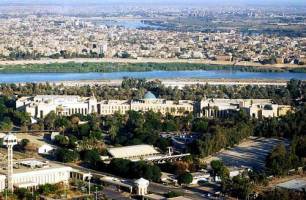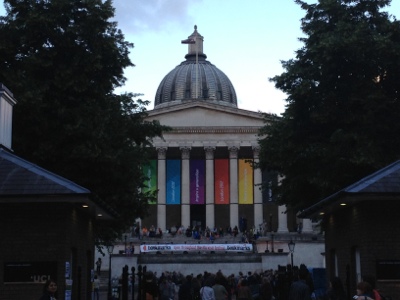I’m going to a New Year’s Eve party next week where the theme is ‘highlights of the year’. I suppose one option is to revive the jubilee theme, but Union Jack bunting was replaced by tinsel some months ago. Another obvious option is to go as an Olympian and dust off my badminton gear and my London 2012 T-shirt. But if not either of those two options, then what else? Gay marriage? Would some kind of bridal theme fit the bill? And would it be right, even, to call that a highlight of the year?
I’m very much torn when it comes to the issue of gay marriage. On the one hand, it seems imperative as a lesbian, as a human, and importantly also as a Christian, to get fully behind the struggle for gay marriage. The implications of gay marriage being overturned, in terms of how this would fuel the anti-gay lobby, seem too detrimental not to. Moreover, as Peter Tatchell has asserted, being a fighter for equality means that whilst I may not necessarily see gay marriage as personally desirable, if this is important to other LGBT people then it is important to show solidarity.
What concerns me however is how some have framed the exclusion of same-sex couples from the institution of marriage as the final inequality. By implication, this suggests that if/when gay marriage is achieved, we can say ‘job done’ in the LGBT equality struggle. Really? Not only is this line of thinking exceptionally naive, but it is dangerous too. Does this mean that there will be less tolerance for hearing about ongoing inequalities; will such reports be met by the retort, “What do you mean, unequal? You can EVEN get married now?”. Since when did marriage become the gold standard of equality?
I appreciate that marriage is important to many people, and that the exclusion from marriage may be experienced as an undervaluing and lack of recognition of one’s relationship – compounded by the rather bureaucratic, legalistic and unromantic language of ‘civil partnership’ and ‘civil partner’. However, so many other life events need to pass by before one reaches the point of marriage, and in these life events, LGBT people do not experience equality.
From homophobic bullying, heteronormative sex education and the silence surrounding sexuality and gender identity struggles in schools, to the anxieties of coming out, proven in some cases by ostracization from families and communities and a disproportionate rate of youth homelessness, young LGBT people may feel that gay marriage is a very remote issue, with day-to-day survival being a more pressing concern. And of course, the devastating reality is that for some these pressures, fears, anxieties and the oppression of rejection and/or self-hatred are too much to bear, with again a disproportionate number of LGBT young people taking their own lives as a result. Campaigns such as ‘It Gets Better’ are moving and inspirational, but surely, regardless of whether or not we have gay marriage, how equal can we be when we still need to make videos to persuade young LGBT people that their lives are worth living?
As the end of 2012 nears, it looks like we will be seeing the start of legislation for gay marriage in 2013, an outcome which to date has been intertwined with fierce debates regarding religious freedom rather than being celebrated as an outright victory. This itself indicates that the road to LGBT equality is a long and winding one, and that we should not be complacent in thinking that the end is in sight. My hope and prayer for 2013 is that gay marriage euphoria – if and when it kicks in – will not come at the cost of sidelining the struggles of those who continue to bear the brunt of LGBT oppression and inequality daily. Gay marriage may be a small part of this struggle, but protection from violence and harassment; support for LGBT youth; resources for LGBT mental health; equal protection for victims of LGBT domestic violence; respect and equal treatment from police, social workers, medical professionals, managers etc; and a social and cultural shift which overturns the very notion of having to ‘come out’, surely need to come first.


 As promised, here is my event report from
As promised, here is my event report from 